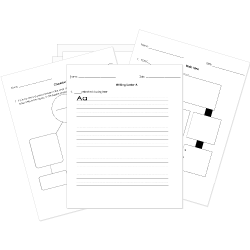Nineteen Eighty-Four (1984) - Science Fiction - Questions for Tests and Worksheets - Eleventh Grade (Grade 11)
You can create printable tests and worksheets from these Grade 11 Nineteen Eighty-Four (1984) questions! Select one or more questions using the checkboxes above each question. Then click the add selected questions to a test button before moving to another page.






